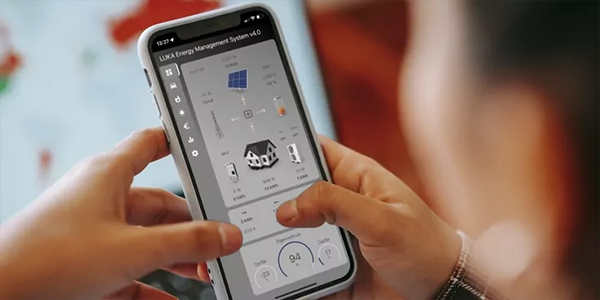
Simon Buddle explains why it makes sense for the multiskilled KNX professional to take on the role of commissioning engineer in projects that involve different trades.
There are days when I seem to do stuff that literally has nothing to do with my world. This morning I was fixing a two-wire door intercom system that is at least 25 years old, if not more. One flat had recently been redeveloped and the builders had managed to knock the internal handset completely off the wall, and then wired it back up, incorrectly. They did that not once, but twice. The problem was that each time they broke it, the entire system stopped working and so I went in to fix it. Why? Well because the landlord has some KNX in his house that I do look after. And it made me think of life as a commissioning engineer.

As we know, KNX sits at the heart of any good controls installation and when we are dealing directly with the end user, life is straightforward when it comes to proving the system works and handing over to the client. Of course, there’ll be the usual issues; a keypad that has to be adjusted, and maybe some lighting scenes that have to be amended. But all in all, getting a project over the line doesn’t cause a headache. This, in part, is due to the robust nature of the KNX products, wiring, and communication protocol. It’s tried and tested and proven to be rock solid. The other element is that we have almost certainly had a lot of input into the peripheral systems such as heat pumps, AC units, manifolds, lighting drivers, etc. We are usually the last person at the end of the project handing over to the homeowner.
But there are times when we are not handing over to anyone, but simply signing off on work completed. This work often needs to be witnessed and be done in conjunction with other trades on site.

The advantages of being a commissioning engineer
As with KNX, being the heart of every installation, so too, the KNX engineer becomes the heart of every project completion team. There is no point in beating about the bush here. If the KNX person isn’t in the room for commissioning, witnessing, and sign off, they’ll almost certainly be the ones to blame for anything and everything that is wrong onsite. So, first lesson; we need to be there all of the time, every time.
But it’s more than that. I find, many times, that I end up dealing with other people’s problems. One that springs to mind recently is when the fused spurs for the HIU and CIU were wired to the opposite device. So, when you switched off the CIU fused spur, the HIU turned off. Boring – and should have been done correctly in the first place and certainly picked up by management before signing off. But it wasn’t. So, power off, screwdrivers out, faceplates swapped, job done. Absolutely not my job. However, if it isn’t done, we can’t sign the apartment off. Likewise, many of the actuator valve heads had been left off after the fan coils had been commissioned.
Here’s the thing, if we’re working on large projects with multiple companies involved, sometimes it’s just easier, faster and more cost-effective for us to take the lead role as commissioning engineers. ‘But it’s not our job’ I hear you say. To that I would reply ‘If you can negotiate a price for that piece of work, there’s no reason why it shouldn’t be.’ By the very nature of what we do, understanding all of the systems we’re controlling is a requirement of our job. And when one of them isn’t working properly, we’re often the first line diagnostics and fault-finding person, regardless of the fact that it’s not a KNX issue.

What happens in practice
I’ve recently had my head inside fan control units, checking wiring and fan speed potentiometers. Why? Initially to prove that the KNX system was doing the right thing, namely sending out a voltage or an ON signal. And then latterly, after saying ‘This isn’t my role’, going to the lengths of recording the readings and being paid for my time to do that. From the developer’s perspective, it is for more efficient (read cost-effective) for one person to solve multiple issues than it is to create snag lists, bring back individual contractors, and then go through the whole testing process again. Of course, there will be issues that are beyond us; for example if the valve is faulty or pipes are dripping, but many of the final issues are small and simple to fix.
Conclusion
If we have to be there anyway, for fear of being thrown under the bus by anyone and everyone, why not make a bit of money? We have the skills, we’re at the heart of the systems and we have the expertise. KNX brings us into contact with so many trades, technologies, and people. Senior KNX engineers are some of the most highly-skilled and valued engineers onsite. Using them to their maximum potential must be a good thing for everyone involved.
Simon Buddle CEng MIET, is a consultant for Future Ready Homes, a specialist in BMS and ELV services system design.












